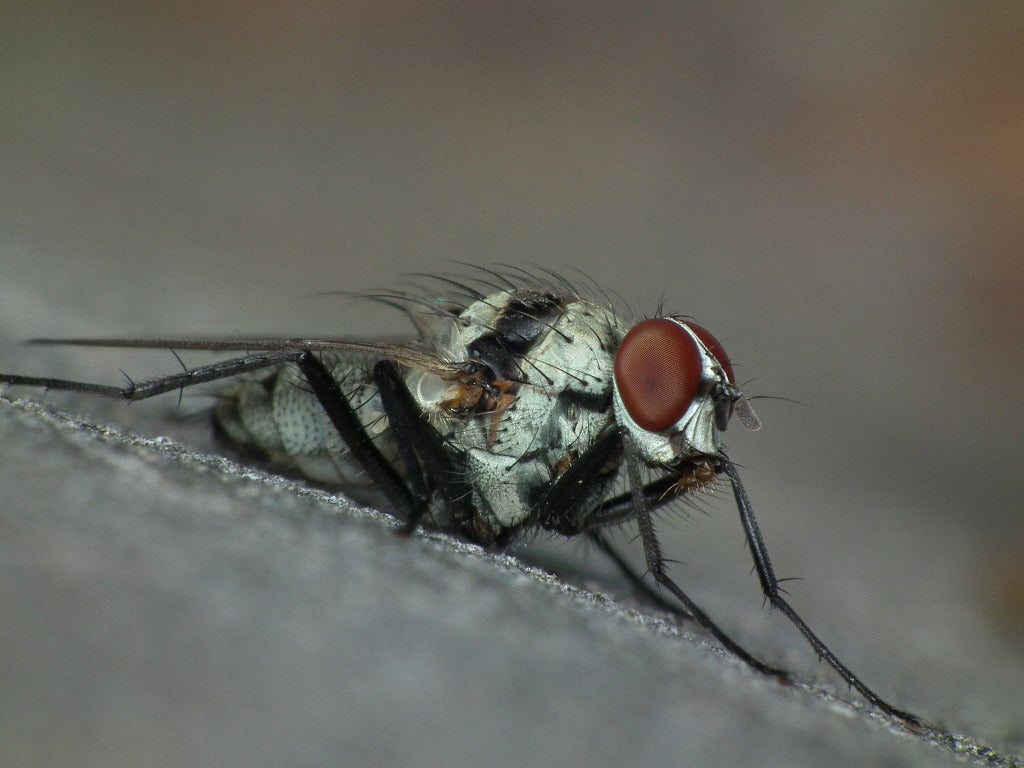Root Eating Insects: Identifying Vegetable Root Maggots And Root Maggot Control


A plant you worked hard to grow dies in the vegetable garden, seemingly for no reason. When you go to dig it up, you find dozens, maybe hundreds, of squirming grayish or yellowish white worms. You have root maggots. These root eating insects can cause some serious damage to your plants.
Root Maggot Lifecycle
Vegetable root maggots are the larva of a type of fly called a root maggot fly. There are several kinds with different preferred host plants. The eggs of these root eating insects are laid in the soil and hatch into larva. The larva are the little worms you see on the roots of your plant. The larva will come to the surface to pupate and then they are adults who will start the process all over again. Eggs can survive the winter in the soil.
Root Maggot Infestation Identification
If a plant is unexplainably stunted or if it starts to wilt for no reason, there may be vegetable root maggots in the soil. Root maggots are more likely to attack in cool weather. The best way to tell is to gently lift the plant from the soil and examine their roots. If vegetable root maggots are the culprit, the roots will be eaten away or tunneled through in the case of larger rooted plants like turnips. Of course, root maggot larva will be present. Root maggots typically attack either legume plants (beans and peas) or cruciferous plants (cabbage, broccoli, turnips, radishes, etc.) but they are not exclusive to those plants and can be found on almost any type of vegetable.
Root Maggot Control
These root eating insects will stay in your garden beds and attack other plants unless you take steps to get rid of them. There are several things you can do for root maggot control. The first thing to do is to get rid of infested plants. Dying plants will attract the root maggot fly and should either be disposed of in the trash or burned. Do not compost them. Once a plant is infested, it cannot be saved, but you can do several things to keep the next plants from becoming infected. Organic root maggot control can be:
- Dusting the plants with diatomaceous earth
- Adding beneficial nematodes to the soil
- Releasing predatory rove beetles into your garden
- Covering plants with floating row covers
- Solarizing infected beds
If you wish to use chemicals for root maggot control, apply a liquid pesticide to your garden bed at the beginning of the growing season. Make sure that you soak the soil. This will kill off the vegetable root maggots. Keep in mind that anything else in treated soil, such as worms, will also be killed. These pesky root eating insects can be stopped if you follow the above tips.
Sign up for the Gardening Know How newsletter today and receive a free copy of our e-book "How to Grow Delicious Tomatoes".

Heather Rhoades founded Gardening Know How in 2007. She holds degrees from Cleveland State University and Northern Kentucky University. She is an avid gardener with a passion for community, and is a recipient of the Master Gardeners of Ohio Lifetime Achievement Award.